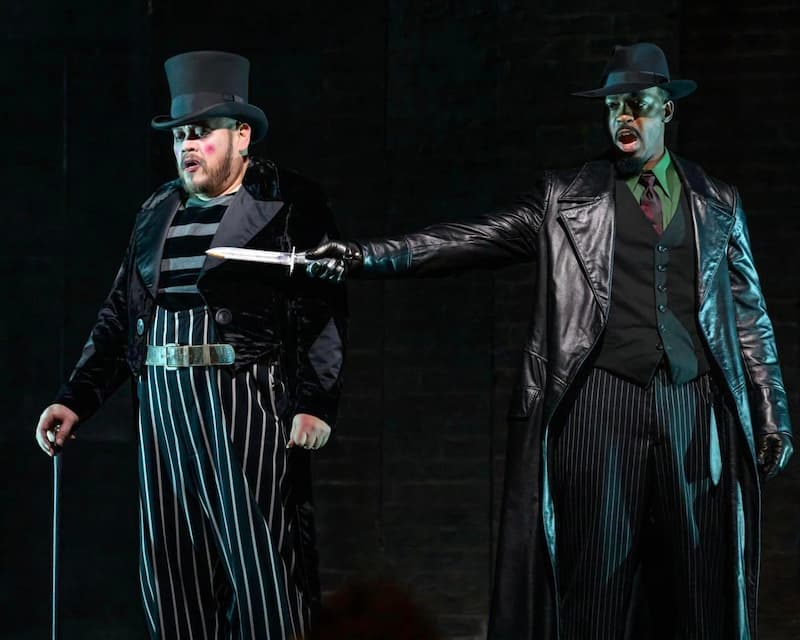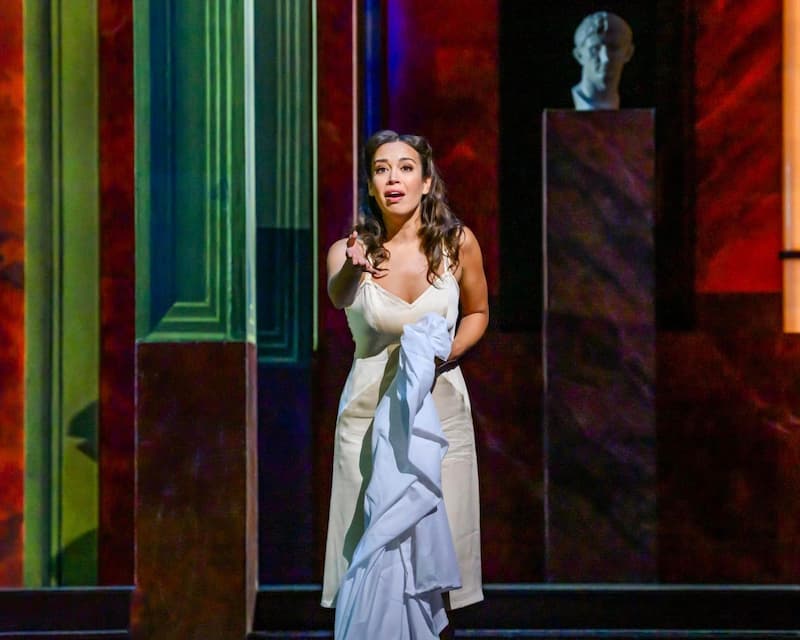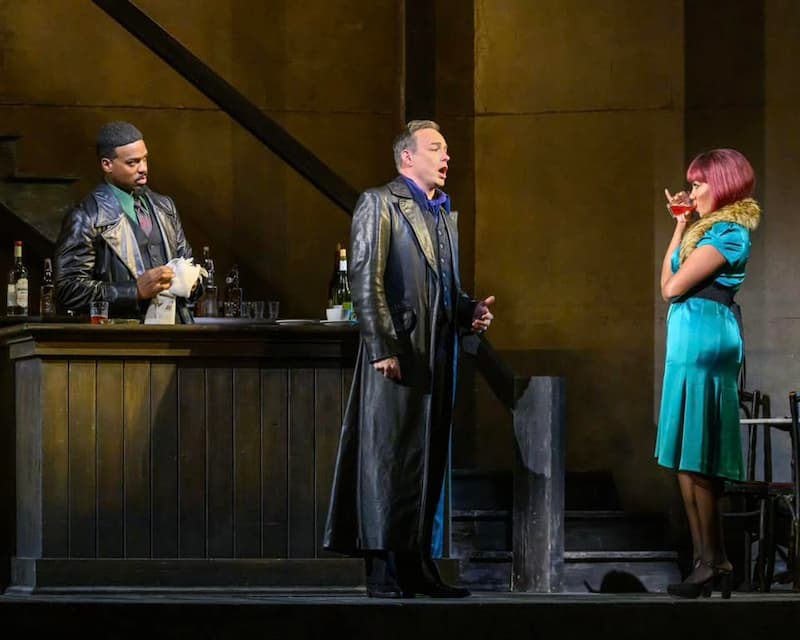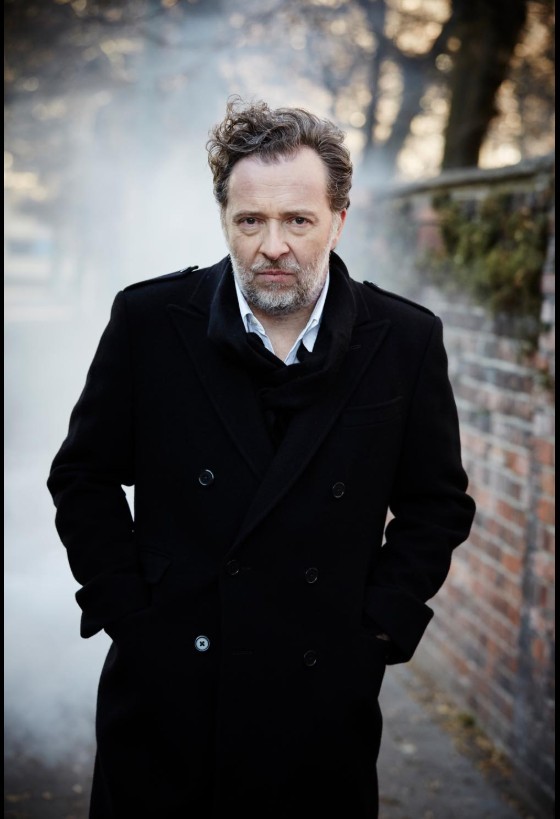Verdi’s Rigoletto has had countless outings at New York’s Metropolitan Opera since 1883. But to make it worthwhile, the house needs access to a baritone who can handle the tricky part vocally, fill the cavernous theatre, but also can imbue the role with personality.
Rigoletto: “Cortigiani, vil razza dannata”
Quinn Kelsey meets all these asks. His voice is at once thunderous and tender, expressive yet steely. His acting is convincing and engaging, even sans visible hunchback, and he commands the stage without hogging it, never falling into the all-too-common posturing and barking.

© Nina Wurtzel / Met Opera
Another attraction of this performance was the relatively new production by Bartlett Sher, which opened on New Years’ eve 2021, and remains visually appealing (sets by Michael Yeargan), sensible, engaging and never static. Though ostensibly set in Weimar, Germany, the costumes (by Catherine Zuber) are perhaps the only element that would indicate as much. The duke’s palace is more neoclassicist Roman bathed in Pompeian red. She uses the rotating stage to tremendous effect, keeping the action rolling and constantly showing movement, plot and development. He also infuses the smaller characters with real personalities, above all Gilda’s minder Giovanna, played exquisitely by Eve Gigliotti, a real scene stealer if ever there was one. This adds levity, humour as well as base humanity.

© Nina Wurtzel / Met Opera
Nadine Sierra’s Gilda is nothing short of magnificent. Writers often frivolously bandy about terms such as the “definitive interpreter of a generation,” but Sierra actually deserves this moniker. A stunningly expressive and attractive actress, her singing is breathtaking. She has all the heft needed for the role and displays flawless, chiselled, modulated notes of such exquisite beauty and technical brilliance, one is left gasping for more. Her voice is never pushed, always on point. She delivers flawless trills and enthralling squillos. Her smooth legato never fails her, even as she sings lying on the floor. Unlike most singers of her generation, Sierra delivers impeccable diminuendos, stunningly holding a note to perceived eternity. Her Caro nome che il mio cor must count as a once in a generation treat.

© Nina Wurtzel / Met Opera
Stephen Costello as the Duke of Mantua delivers confidence and a forceful, rich middle register, though he soon strained at the top, and wisely avoided subsequent top notes until the last act. He is a fine tenor in the American tradition and an effective actor.
The all-American line-up was completed with the murderous siblings of Sparafucile, sung with sonorous chill by Soloman Howard, and Maddalena, luxuriously cast with J’Nai Bridges. She manages to position the four singers in a uniquely sensible position for a sensationally delivered quartet Bella figlia dell’amore.
Pier Giorgio Morandi kept the orchestra moving swiftly, never overpowering the singers and encouraging the Met orchestra’s idiosyncratic sound.
Of greater concern was the attendance. There were many empty seats, admittedly a holiday weekend in New York, and the theatre’s F&B options remain limited, overpriced, and poorly run: a big disincentive for younger attendees. This is a pity, as an operatic classic of this quality should be able to breed new generations of Met goers to a much greater extent than short-lived contemporary operas.
Performance attended: October 4, 2024
For more of the best in classical music, sign up for our E-Newsletter


